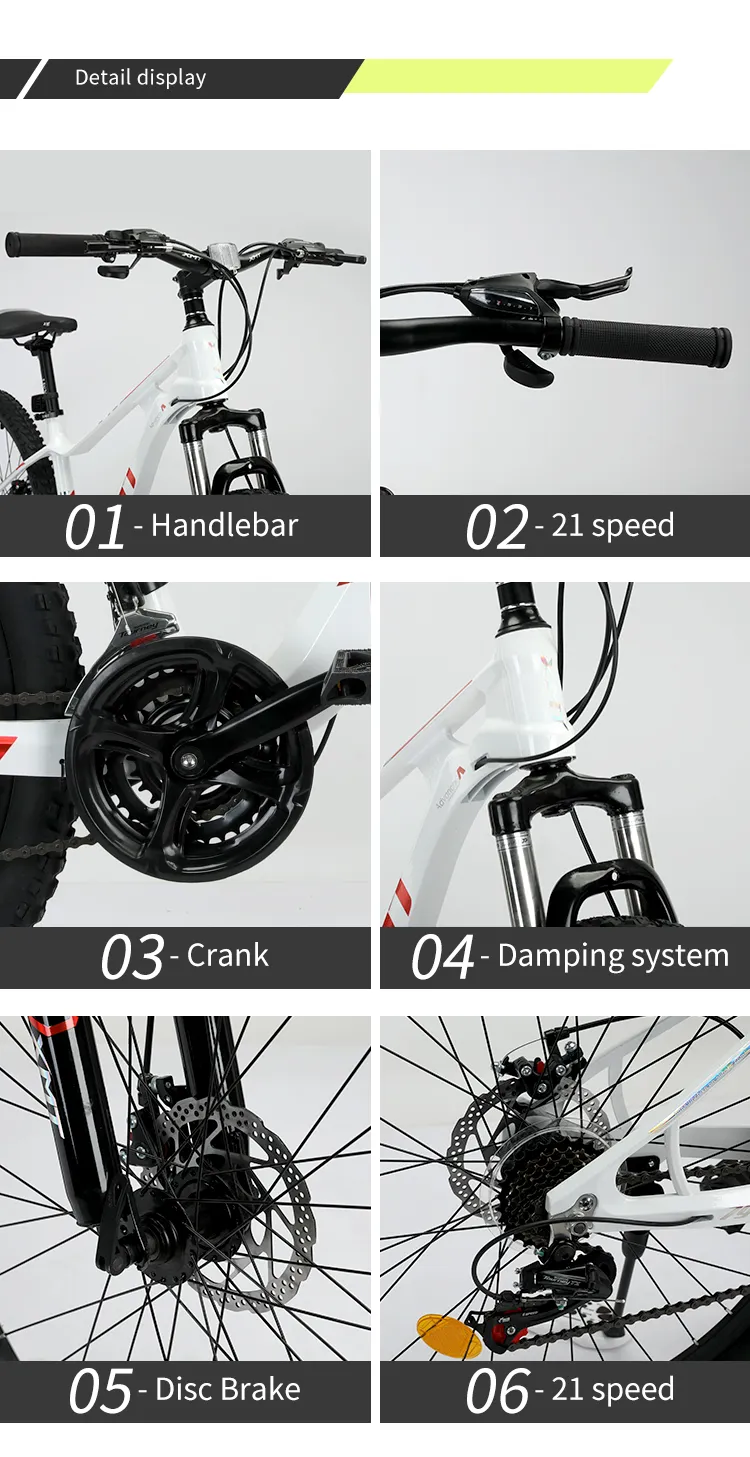2 月 . 17, 2025 21:08 Back to list
mountain bicycle for sale
Collapsible bicycles, often referred to as folding bikes, have gained immense popularity among urban commuters and cycling enthusiasts alike. These ingenious designs offer a practical solution to the modern-day challenges of city life, effectively merging convenience with sustainability. In this article, we will delve into the world of collapsible bicycles, exploring their benefits, the technology behind them, and why they are becoming an indispensable part of urban mobility.
For the frequent traveler who seeks adventure beyond the city, collapsible bicycles open up a world of possibilities. These bikes can easily be packed into car trunks or checked in as luggage for train or air travel. This portability allows travelers to explore new terrains without the hassle of renting a bike or relying on local transportation. Additionally, the ability to carry a bike along enhances personal safety by avoiding questionable rental options and ensuring one has a reliable means of transport wherever they go. The growing trend of collapsible bicycles has also led to a thriving market with a variety of options to suit different needs and preferences. Understanding the key features and differences among models is crucial when selecting the ideal bike. Factors such as wheel size, folding speed, weight, and intended use should be considered. Some brands focus on ultra-light designs aimed at ease of carrying, while others prioritize rugged builds capable of handling varied terrains. Consumers can trust in the reliability and quality of reputable brands. Established manufacturers with a history of craftsmanship often provide better warranties and customer support, which enhances the trustworthiness of the investment. Additionally, reading reviews and seeking recommendations from cycling communities can provide invaluable insights from real-life experiences. In conclusion, collapsible bicycles represent a smart, sustainable, and stylish solution for modern commuters and travelers. Their design evolution has brought about significant enhancements in portability, performance, and eco-friendliness, making them a staple for anyone looking to navigate urban environments efficiently. Embracing these bikes is not just a lifestyle choice but a step towards a greener future. As cities continue to swell and environmental concerns persist, the role of collapsible bicycles is likely to become increasingly pivotal in the global movement towards sustainable urban living.


For the frequent traveler who seeks adventure beyond the city, collapsible bicycles open up a world of possibilities. These bikes can easily be packed into car trunks or checked in as luggage for train or air travel. This portability allows travelers to explore new terrains without the hassle of renting a bike or relying on local transportation. Additionally, the ability to carry a bike along enhances personal safety by avoiding questionable rental options and ensuring one has a reliable means of transport wherever they go. The growing trend of collapsible bicycles has also led to a thriving market with a variety of options to suit different needs and preferences. Understanding the key features and differences among models is crucial when selecting the ideal bike. Factors such as wheel size, folding speed, weight, and intended use should be considered. Some brands focus on ultra-light designs aimed at ease of carrying, while others prioritize rugged builds capable of handling varied terrains. Consumers can trust in the reliability and quality of reputable brands. Established manufacturers with a history of craftsmanship often provide better warranties and customer support, which enhances the trustworthiness of the investment. Additionally, reading reviews and seeking recommendations from cycling communities can provide invaluable insights from real-life experiences. In conclusion, collapsible bicycles represent a smart, sustainable, and stylish solution for modern commuters and travelers. Their design evolution has brought about significant enhancements in portability, performance, and eco-friendliness, making them a staple for anyone looking to navigate urban environments efficiently. Embracing these bikes is not just a lifestyle choice but a step towards a greener future. As cities continue to swell and environmental concerns persist, the role of collapsible bicycles is likely to become increasingly pivotal in the global movement towards sustainable urban living.
Latest news
-
Toy Car with Parental Remote - Safe Electric Ride-On Car with Parental Control
NewsJun.10,2025
-
Cheap Bikes for Students - Affordable & Durable Student Bicycles Online
NewsJun.10,2025
-
Children Balance Bike Lightweight & Adjustable OEM Designs
NewsMay.30,2025
-
Junior BMX Race Bikes Lightweight, Durable & Speed-Optimized
NewsMay.30,2025
-
21-Speed Foldable Gear Cycle Compact & Portable Commuter Bike
NewsMay.30,2025
-
Affordable & Durable Bikes for Students Campus Commutes Made Easy
NewsMay.29,2025



